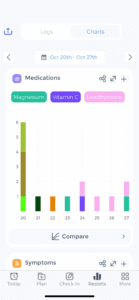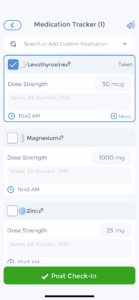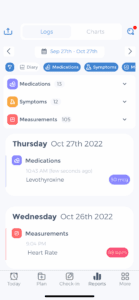
Hashimoto’s disease is an autoimmune disorder in which the body’s immune system attacks the thyroid gland. The thyroid gland is a small, butterfly-shaped gland located in the front of the neck. It produces hormones that regulate the body’s metabolism. In Hashimoto’s disease, the immune system attacks the thyroid gland, causing inflammation and damage. A Hashimoto’s disease flare up can cause a variety of symptoms, including fatigue, weight gain, depression, and dry skin.
Hashimoto’s disease is the most common cause of hypothyroidism (an underactive thyroid) in the United States. There is no cure for Hashimoto’s disease, but it can be managed with medication and lifestyle changes. With treatment, most people with Hashimoto’s disease are able to lead normal, healthy lives.[1][2]
Table of Contents
- What is a Hashimoto’s flare up?
- What triggers a Hashimoto’s flare up?
- Possible causes of low T4 levels
- What does a Hashimoto flare feel like?
- How long does a Hashimoto’s flare last?
- How can you manage a Hashimoto’s flare up?
- Lifestyle Changes
- Can certain foods cause a hashimoto symptoms to flare-up?
- What should you do when your symptoms flare up?
- How can the CareClinic App help manage hashimoto’s?
- FAQ’s
- Living with Hashimoto’s disease
What is a Hashimoto’s flare up?
A Hashimoto’s flare up is a temporary worsening of symptoms that can occur when the disease is active. During a flare up, you may experience fatigue, weight gain, depression, and dry skin. Flare ups can be triggered by stress, illness, or other factors. With treatment, most people with Hashimoto’s disease are able to manage their symptoms and prevent flare ups.
What triggers a Hashimoto’s flare up?
The exact cause for a hashimoto flare up is not known. However, there are several possible triggers, including stress, illness, and certain medications. If you have Hashimoto’s disease, it’s important to be aware of these potential triggers and take steps to avoid them.
Medications such as corticosteroids and thyroid hormone replacement therapy can also cause flare ups. If you’re taking these medications, talk to your doctor about ways to minimize the risk of a flare up.
Stress can cause a Hashimoto’s flare ups by affecting the body’s immune system. To help manage stress and keep flare ups at bay, try to get regular exercise, practice yoga or meditation, and get plenty of rest.
Being sick with a cold or the flu can also trigger a Hashimoto’s flare up as the body’s immune system is already compromised. If you’re sick, be sure to rest and take care of yourself. Drink plenty of fluids and eat a healthy diet.[3][4]
Possible causes of low T4 levels
There are several possible causes of low T4 levels, including:
- Hashimoto’s disease
- Pituitary gland disorders
- Hypothyroidism
- Certain medications
- Iodine deficiency
- Autoimmune diseases
If you have Hashimoto’s disease, your body is attacking the thyroid gland and causing inflammation. This can lead to damage and a decrease in hormone production. Hashimoto’s is the most common cause of hypothyroidism in the United States.
Pituitary gland disorders can also cause low T4 levels. The pituitary gland is located at the base of the brain and regulates hormone production. If the pituitary gland is not working properly, it can lead to low T4 levels.
Hypothyroidism is a condition in which the thyroid gland does not produce enough hormones. This can be caused by Hashimoto’s disease, pituitary gland disorders, or iodine deficiency.
Certain medications can cause low T4 levels as a side effect. These medications include lithium, amiodarone, interferon, and glucocorticoids.
Iodine deficiency is the most common cause of hypothyroidism worldwide. Iodine is a mineral that’s necessary for thyroid hormone production. If you don’t have enough iodine in your diet, it can lead to low T4 levels.
Autoimmune diseases such as Lupus and Graves’ disease can also cause low T4 levels. These diseases cause the body’s immune system to attack healthy tissue, including the thyroid gland.[5][6][7]
What does a Hashimoto flare feel like?
To tell if you are experiencing a Hashimoto’s flare up, pay attention to how you feel. If you have the disease, you may be more sensitive to changes in your body. When a person experiences a flare up, they may feel fatigued, notice weight gain, or suffer from depression and dry skin.
Feeling fatigued is one of the most common symptoms of a Hashimoto’s flare up. If you’re feeling exhausted, it may be hard to get through your day-to-day activities. You may also find it difficult to concentrate or remember things. The reason this happens is because the body’s immune system is attacking the thyroid gland, causing inflammation and damage. This can lead to an underactive thyroid, or hypothyroidism. When the thyroid isn’t functioning properly, it can affect your energy levels.
Weight gain is another common symptom of a Hashimoto’s flare. This is because the thyroid gland regulates the body’s metabolism. When the thyroid is inflamed, it doesn’t work as well, and this can cause weight gain.
Depression is another possible symptom of a Hashimoto’s flare up. This may be due to the fatigue and other changes in your body that can occur during a flare up.
Dry skin is another symptom of a Hashimoto’s flare up. The exact reason could be due to the inflammation and damage to the thyroid gland. This can lead to a decrease in hormone production, which can affect the skin’s moisture levels.
How long does a Hashimoto’s flare last?
There is no set amount of time for how long a Hashimoto’s flare up will last. It depends on the person and the severity of their symptoms. For some people, a flare up may last a few days, while others may experience symptoms for weeks or months. With treatment, most people are able to manage their flare ups and prevent them from becoming worse.
h2,h3 { display: inline-block; }[8]
How can you manage a Hashimoto’s flare up?

In general, treatment for a Hashimoto’s flare up focuses on relieving symptoms and supporting the thyroid gland. This may include taking thyroid hormone replacement therapy, steroids, or other medications. Your doctor may also recommend lifestyle changes such as getting regular exercise, managing stress, and eating a healthy diet. With treatment, most people are able to manage their flare ups and prevent them from becoming worse.
Hormone Replacement Therapy
One treatment option for a Hashimoto’s is hormone replacement therapy. This involves taking thyroid hormones to replace the ones that are not being produced by the thyroid gland. This can help ease symptoms such as fatigue, weight gain, and dry skin. The most common medication perscribed for hormone replacement therapy is Levothyroxine.
Levothyroxine is often the first treatment option for people with Hashimoto’s. It is a synthetic form of the hormone thyroxine, which is produced by the thyroid gland. Levothyroxine can help replace the missing hormones and ease symptoms. The medication is safe and effective for most people, but it may take a few weeks to start working.
Make sure to avoid any over-the-counter thyroid supplements, as they can interfere with your medication. Along with certain medications such as lithium, birth control pills, and antacids. Specific supplements also include : calcium, iron, soy, and fiber. Consult a pharmacist or doctor before taking any new medications or supplements.
Steroids
Another treatment option for Hashimoto’s flares is steroids. Steroids can help reduce inflammation and ease symptoms. The most common steroid used to treat Hashimoto’s is prednisone. Prednisone is a corticosteroid that can help reduce inflammation. It is typically taken as a pill, but it can also be injected or given as a liquid.
Prednisone can cause side effects such as weight gain, mood swings, and trouble sleeping. These side effects usually go away after you stop taking the medication. If you are concerned about the side effects, talk to your doctor. They can help you decide if prednisone is the right treatment for you. Not everyone with Hashimoto’s will need steroids, but they may be recommended for people who have severe symptoms or do not respond to other treatments.
Other Thyroid Medications

– Antithyroid drugs: Propylthiouracil (PTU) and methimazole (Tapazole) can help slow down the production of thyroid hormones. These drugs are typically taken for 6 to 12 weeks and then the dose is slowly decreased.
– Immunosuppressants: These drugs can help reduce the activity of the immune system. This can help lessen symptoms and prevent flares. The most common immunosuppressant used to treat Hashimoto’s is azathioprine (Imuran).
– Thyroid hormone analogs: These drugs can help reduce the production of thyroid hormones. They are typically used when other treatments have not worked. The most common thyroid hormone analog is liothyronine (Cytomel).
Lifestyle Changes
In addition to medication, there are lifestyle changes that can help manage Hashimoto’s flares. These include:
– Getting regular exercise: Exercise can help reduce stress and improve overall health. It is important to talk to your doctor before starting an exercise program, as some types of exercise may be too strenuous for people with Hashimoto’s.
– Managing stress: Stress can trigger a Hashimoto’s flare. Stress management techniques such as relaxation therapy, yoga, and meditation can help reduce stress and ease symptoms.
– Eating a healthy diet: A healthy diet can help support the immune system and reduce inflammation. Foods to include in a Hashimoto’s diet include:
– Fresh fruits and vegetables
– Whole grains
– Lean proteins
– Healthy fats
– Probiotic-rich foods
– Foods high in antioxidants
Making these lifestyle changes can help reduce the frequency and severity of Hashimoto’s flares. If you are having trouble managing your flares, talk to your doctor. They can help you develop a treatment plan that works for you.[9]
Can certain foods cause a hashimoto symptoms to flare-up?
There are some foods that can trigger a Hashimoto’s flare-up. These include:
- Gluten: People with Hashimoto’s are often sensitive to gluten, a protein found in wheat, barley, and rye. Eating gluten can cause inflammation and worsen symptoms.
- Soy: Soy contains goitrogens, which can interfere with thyroid function. Eating soy can trigger a Hashimoto’s flare-up.
- Cruciferous vegetables: Cruciferous vegetables such as broccoli, cabbage, and kale contain goitrogens. These vegetables can interfere with thyroid function and trigger a Hashimoto’s flare-up.
- Dairy: Some people with Hashimoto’s are sensitive to dairy. Dairy can cause inflammation and worsen symptoms.
- Eggs: Eggs are a common food allergen. People with Hashimoto’s who are sensitive to eggs may experience a flare-up after eating them.
What should you do when your symptoms flare up?

– Taking over-the-counter pain relievers: Pain relievers such as ibuprofen and acetaminophen can help relieve the pain and inflammation associated with a Hashimoto’s flare-up.
– Applying a warm compress: A warm compress can help reduce pain and inflammation. To make a warm compress, soak a clean cloth in warm water and apply it to the affected area for 10 minutes.
– Taking a thyroid supplement: Thyroid supplements can help replace the hormones that are not being produced by the thyroid gland. This can help reduce symptoms of a Hashimoto’s flare-up.
– Adjusting your medication dose: If you are taking medication for Hashimoto’s, your doctor may need to adjust your dose during a flare-up. This can help control your symptoms and prevent further flares.
Speak to your doctor. They can help you develop a treatment plan that works for you. Hashimoto’s is a chronic condition that can be difficult to manage. However, with the right treatment plan, it is possible to keep symptoms under control. If you are experiencing a Hashimoto’s flare-up symptoms often, consider using the CareClinic App below to manage your entire treatment easily.
How can the CareClinic App help manage hashimoto’s?

Tracking your symptoms: If you are experiencing symptoms, CareClinic can be used to track your symptoms and their severity. This information can be shared with your doctor to help them develop a treatment plan that works for you.
Managing thyroid medication: The app can be used to manage all of your medications, including thyroid supplements. You can set pill reminders to take your medications and track their side effects.
Making lifestyle changes: The app can help you make lifestyle changes that can reduce the frequency and severity of Hashimoto’s flares. You can track your diet, exercise, and sleep to see how they affect your symptoms.
Viewing Reports & Logs: The app generates reports and logs that can be shared with your doctor. This information can help them understand how Hashimoto’s is affecting you and make changes to your treatment plan accordingly. You can of course analyze all your health metrics yourself too and easily find correlations listed for you among different aspects of your life.
For Journaling: Journaling can help you manage your stress levels, which can trigger a flare-up. The app has a built-in journaling functionality and prompts that can be used to track your mood and stress levels.
The CareClinic App is a valuable tool for managing Hashimoto’s. It can help you track your symptoms, medications, and lifestyle changes. It can also remind you to take your medications and make lifestyle changes that can reduce the frequency and severity of Hashimoto’s flares. Download the app today on Android or Apple iOS.
FAQ’s
Frequently asked questions related to low thyroid function, autoimmune disease and low general thyroid health.
What are thyroid antibodies?
Thyroid antibodies are proteins that attack the thyroid gland. They are a key feature of Hashimoto’s disease.
Is joint pain common?
Joint pain is a common symptom of Hashimoto’s disease. It is caused by the inflammation associated with the condition. Arthritis is also a common complication of Hashimoto’s.
Can Hashimoto’s lead to other health problems?
Possibly, Hashimoto’s disease can lead to other health problems, such as heart disease and diabetes as a result of the hormone imbalances it causes.
What are other risk factors?
Other risk factors for Hashimoto’s disease include being female, having a family history of the condition, and being over the age of 60.
How is Hashimoto’s diagnosed?
A diagnosis of Hashimoto’s is usually made based on symptoms, physical examination, and blood tests. An ultrasound or CT scan may also be done to look for evidence of thyroid damage.
What is a good anti-inflammatory diet?
A good anti-inflammatory diet includes plenty of fruits, vegetables, whole grains, and healthy fats. Omega-3 fatty acids are particularly beneficial. Avoid processed foods, refined sugars, and trans fats. Specific diets to look into include the Mediterranean diet and the Paleo diet. Try doing an elimination diet as it can help identify food sensitivities that may be triggering inflammation.
What should my thyroid antibody levels be?
The normal range for thyroid antibodies is 0-34 IU/mL. However, levels may be higher in people with Hashimoto’s disease. Your thyroid hormone levels will be checked periodically with blood tests. Your doctor will look for changes in your thyroid hormone levels to determine if your treatment plan needs to be adjusted.
When can I stop tracking my condition?
As with other autoimmune conditions, there is no cure for Hashimoto’s disease. However, with treatment, it is possible to manage the condition and reduce the frequency and severity of flares. Once you have been on treatment for a while and your symptoms are well-controlled, you may be able to stop tracking your condition as closely. However, it is important to continue to see your doctor for regular checkups.
Does it affect my menstrual cycle?
Yes, Hashimoto’s disease can affect your menstrual cycle. It can cause irregular periods or even amenorrhea (absence of menstruation). This is due to hormonal imbalances. If you are experiencing changes in your menstrual cycle, talk to your doctor about it. They may be able to adjust your treatment plan.
Can I get pregnant if I have Hashimoto’s disease?
Yes, you can get pregnant if you have Hashimoto’s disease. However, hormonal imbalances can make it more difficult to conceive. Consider also paying tracking your food during pregnancy if you have Hashimoto’s.
What is a thyroid temperature chart?
A thyroid temperature chart is a tool used to track changes in body temperature. This can be helpful in identifying patterns that may be associated with Hashimoto’s disease.
Living with Hashimoto’s disease
Living with Hashimoto’s can be difficult as the symptoms can be debilitating. Many people with Hashimoto’s report feeling fatigued, anxious, and depressed. They may also have difficulty concentrating and experience brain fog. Physical symptoms such as pain, swelling, and inflammation are also common. These symptoms can make it difficult to carry out everyday activities.
Hashimoto’s is a chronic condition that can be difficult to manage. However, with the right treatment plan, it is possible to keep symptoms under control. If you are experiencing a Hashimoto’s flare-up, speak to your doctor. They can help you develop a treatment plan that works for you. The CareClinic App can also be used to manage all aspects of your care, including tracking your symptoms, managing medication reminders, and making lifestyle changes. Download the app today on Android or Apple iOS by clicking here.
References
- “Hashimoto’s disease – Symptoms and causes – Mayo Clinic”. https://www.akamai.mayoclinic.org/diseases-conditions/hashimotos-disease/symptoms-causes/syc-20351855
- “Hashimoto’s Disease: What It Is, Symptoms & Treatment”. https://my.clevelandclinic.org/health/diseases/17665-hashimotos-disease
- “5 Ways That Stress Causes Hypothyroid Symptoms – Chris Kresser”. https://chriskresser.com/5-ways-that-stress-causes-hypothyroid-symptoms/
- “Chronic Stress and Hashimoto’s: Breaking the Cycle of Pressure and Overload”. https://www.autoimmunehub.co.uk/post/chronic-stress-and-hashimoto-s-breaking-the-cycle-of-pressure-and-overload
- “Drug Effects on the Thyroid | NEJM Resident 360”. https://resident360.nejm.org/clinical-pearls/drug-effects-on-the-thyroid
- “11 Medications That Can Cause Drug-Induced Hypothyroidism”. https://www.rupahealth.com/post/drug-induced-hypothyroidism
- “Hypothyroidism”. https://en.wikipedia.org/wiki/Hypothyroidism
- “How Various Factors Can Affect the Length of a Hashimoto’s Flare-Up”. https://www.healthieruny.com/resources/how-long-do-hashimotos-flare-ups-last
- “The Best Diet for Hashimoto’s Disease”. https://www.eatingwell.com/article/291148/the-best-diet-for-hashimotos-disease/
- “Effectiveness of Mobile Applications on Medication Adherence in Adults with Chronic Diseases: A Systematic Review and Meta-Analysis | Journal of Managed Care & Specialty Pharmacy”. https://www.jmcp.org/doi/10.18553/jmcp.2020.26.4.550


